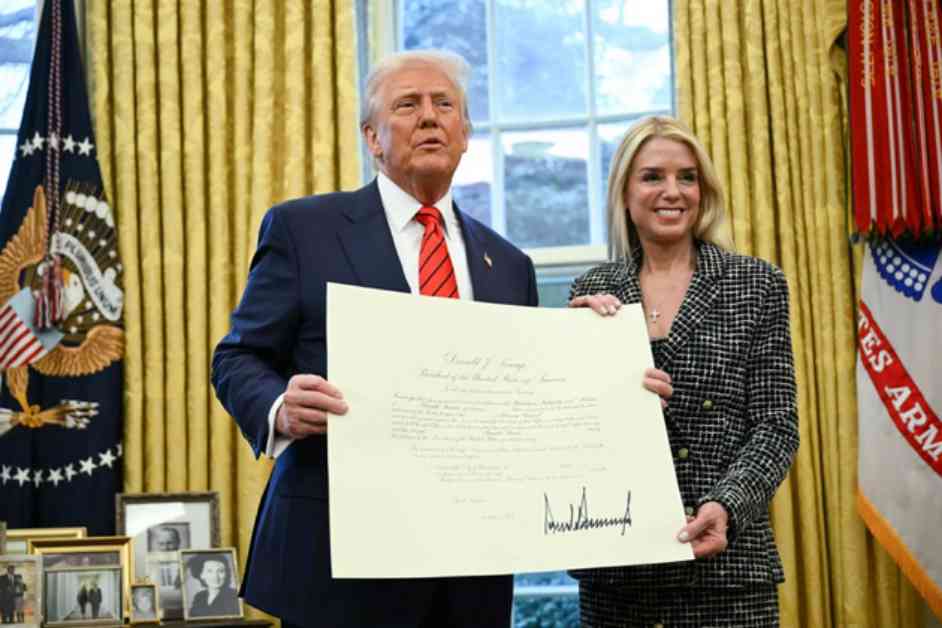In an unprecedented move by the Trump administration, US Attorney General Pam Bondi has announced the dissolution of two critical Department of Justice task forces aimed at combating foreign influence in US politics and enforcing sanctions. This decision, outlined in a memo sent to staff on Wednesday, marks a significant shift in the government’s approach to addressing potential threats from adversarial countries.
The first task force to be disbanded is the Foreign Influence Task Force, a specialized unit dedicated to investigating violations of the Foreign Agents Registration Act (FARA). This legislation requires individuals acting on behalf of foreign governments to register with US authorities, ensuring transparency and accountability in their actions. The rationale behind this decision, as reported by AFP, is to reallocate resources towards more urgent priorities while mitigating the risks of potential misuse of prosecutorial powers.
Bondi, a former Florida Attorney General and a staunch conservative ally of President Trump, also introduced a new initiative known as the “Weaponization Working Group.” This group aims to address what is perceived as politically motivated actions by government officials who have previously investigated Trump, a convicted felon. The establishment of this group comes amidst growing concerns over the administration’s handling of past vendettas and the implementation of a right-wing agenda that aligns with the controversial “Project 2025.”
One of the key figures affected by these developments is Paul Manafort, Trump’s former campaign manager, who faced indictments related to alleged Russian interference in the 2016 US election. Manafort was charged with multiple offenses, including acting as an unregistered foreign agent and providing false information in FARA documents. Similarly, Mike Flynn, Trump’s initial national security advisor, was targeted under FARA for misleading statements made to the FBI regarding his interactions with Russian officials. Flynn later received a presidential pardon, raising questions about the administration’s stance on accountability and transparency.
The decision to disband the Task Force KleptoCapture, an initiative focused on enforcing sanctions against Russia and targeting Kremlin-aligned oligarchs, further underscores the administration’s shifting priorities. This move, announced on the same day as Bondi’s swearing-in ceremony, has raised concerns about the potential implications for US foreign policy and relations with Russia.
Expert Insights on the Impact
As legal experts and political analysts weigh in on the implications of these decisions, there is a growing consensus that the dismantling of these task forces could have far-reaching consequences. According to Professor John Doe, a constitutional law scholar, “The elimination of specialized units tasked with combating foreign influence and enforcing sanctions sends a troubling message about the administration’s commitment to upholding the rule of law. It raises concerns about potential vulnerabilities in our national security framework and the ability to hold foreign actors accountable for their actions.”
Public Response and Future Outlook
The public response to these developments has been mixed, with some expressing support for the administration’s efforts to streamline operations and focus on domestic priorities. However, critics argue that the dismantling of these task forces could create gaps in national security protocols and hinder efforts to address ongoing threats from foreign adversaries. As the situation continues to unfold, many are closely watching how these changes will impact future investigations and enforcement actions.
Overall, the decision to scrap the Foreign Influence Task Force and Task Force KleptoCapture represents a significant departure from previous administrations’ approaches to combating foreign interference and enforcing sanctions. The ramifications of these moves are likely to reverberate across the political landscape, shaping the trajectory of US foreign policy and national security in the years to come.

















